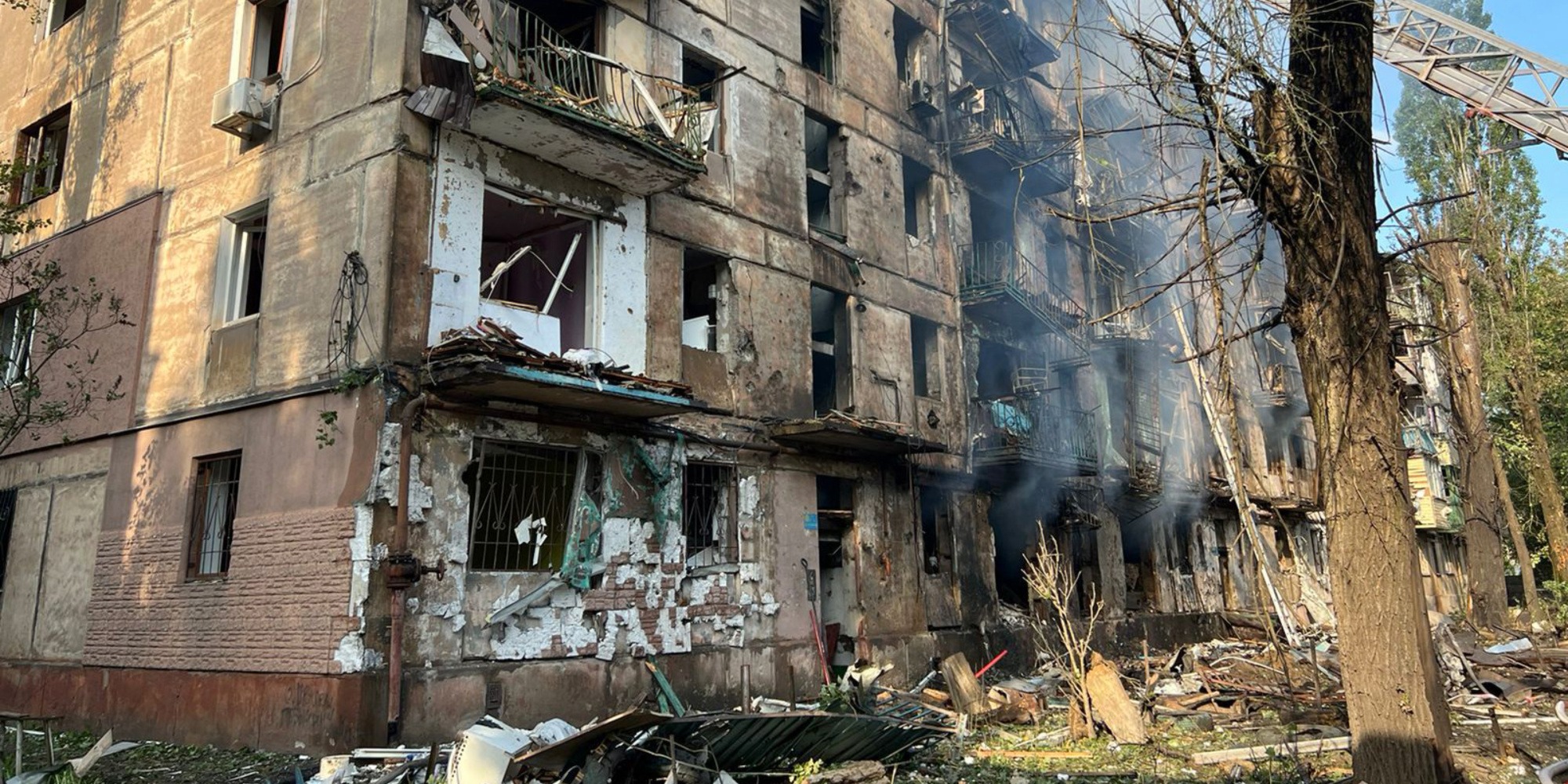Ukrainian President Volodymyr Zelensky on Thursday promised a “tangible” response after a missile strike on a residential building killed four people in Lviv, western Ukraine, hundreds of kilometers from the front lines. “There will definitely be a response to the enemy. A tangible (response),” Volodymyr Zelensky said on Telegram in a message accompanied by a video where several heavily damaged buildings can be seen.
Information to remember:
- Four people died in Lviv after a missile strike against a residential building.
- Ukrainian President Volodymyr Zelensky promised a “tangible” response.
- Belarusian President Alexander Lukashenko claimed that Wagner’s boss, Yevgeny Prigojine, was still in Russia.
As a result of a “Russian missile attack”, “four people were killed, nine were injured”, Interior Minister Igor Klymenko said on Telegram. Relief operations continue and debris continues to be cleared, he added. “The 3rd and 4th floors of two sections of the building were destroyed.” “This is the biggest attack on civilian infrastructure in Lviv since the start of the large-scale invasion” of Ukraine, Lviv Mayor Andriï Sadovyi described on Telegram.
Regional Governor Maksym Kozytsky had reported overnight that “enemy missiles” were heading towards western regions of Ukraine, citing the Ukrainian armed forces. “A series of explosions” was then heard in Lviv, according to the mayor. “The destruction is enormous, more than 50 apartments were devastated (…) An office building suffered damage”, as well as the building of a school and the dormitory of the Polytechnic University of Lviv”, a reported Mr. Sadovyi.
Debris
“The first explosion knocked the flower pots off the windowsill,” a resident told US-funded Radio Liberty. “The second explosion just destroyed everything. There is nothing left. Everything is gone.” Several hundred kilometers from the front, Lviv and its region have already been the target of attacks since the Russian invasion of Ukraine on February 24, 2022.
On the night of June 19-20, “critical infrastructure” in Lviv was hit by drones, the local governor reported, and five people were killed in March in a shooting at a residential area of Velyka Vilchanytsia, in the Lviv region.
Slow counter-offensive
On the military front, Volodymyr Zelensky said the slow delivery of weapons to Ukraine has delayed Kiev’s counter-offensive, which has allowed Moscow to strengthen its defenses in occupied areas, including through mines . “I wanted our counter-offensive to take place much sooner,” he told reporter Erin Burnett of the American channel CNN in Odessa, in an interview broadcast on Wednesday and filmed a few days earlier.
“I am grateful to the United States (…) but I told them, as well as the Europeans, that we would like to start our counter-offensive earlier and that we would need all the weapons and all the material for it.”
On Wednesday, the International Atomic Energy Agency (IAEA) also demanded access to the entire Ukrainian nuclear power plant in Zaporizhia (South), occupied by Moscow, so that its observers could “confirm the absence mines or explosives on the site”. The Ukrainian army claims that “objects similar to explosive devices were placed” on the roofs to “give the impression of bombardments from the Ukrainian side”.
The UN body was unable to access the roofs of the premises housing reactors 3 and 4 or even certain areas of the plant’s cooling system. The Kremlin warned for its part of a possible Ukrainian “subversive act” with “catastrophic consequences” in the nuclear power plant.
Falling into the hands of the Russian army on March 4, 2022, the largest power plant in Europe has been targeted by fire and has been cut off from the electricity network on several occasions, a precarious situation which raises fears of a major nuclear accident.
Wagner’s boss is in Russia, not Belarus
Belarusian President Alexander Lukashenko said on Thursday that the boss of the paramilitary group Wagner, Yevgeny Prigojine, was still in Russia, despite the agreement providing for his departure to Belarus after his abortive rebellion on June 24.
“As for Prigojine, he is in Saint Petersburg. Where is he this morning? Maybe gone to Moscow, or elsewhere, but he is not on Belarusian territory,” said Alexander Lukashenko during a conference of press. According to him, Wagner’s fighters are also “in their camps” and not in Belarus, “for the moment”.
“If (the Russian government and the Wagner Group) deem it necessary to deploy a certain number of Wagner fighters to Belarus for rest or training (…) then I will apply my decision” to welcome them, he said. -he adds. “I don’t think Wagner will revolt and turn his weapons against the Belarusian state,” also assured Alexander Lukashenko.
Wagner’s rebellion, led on June 24, shook Russian power, in the midst of the conflict in Ukraine. For several hours, Wagner’s fighters occupied a Russian army headquarters in Rostov-on-Don (southwest) and traveled several hundred kilometers towards Moscow.
The mutiny ended on the evening of June 24 with an agreement providing for the departure to Belarus of Yevgeny Prigojine, but the exact location of the latter has since been unknown. He has not spoken publicly since June 26. Yevgeny Prigojine assured that his uprising was not intended to overthrow power, but to save Wagner from being dismantled by the Russian general staff, which he accuses of incompetence in the conflict in Ukraine.
